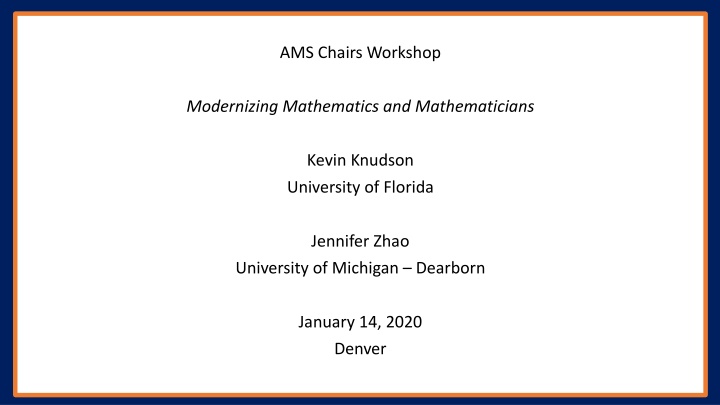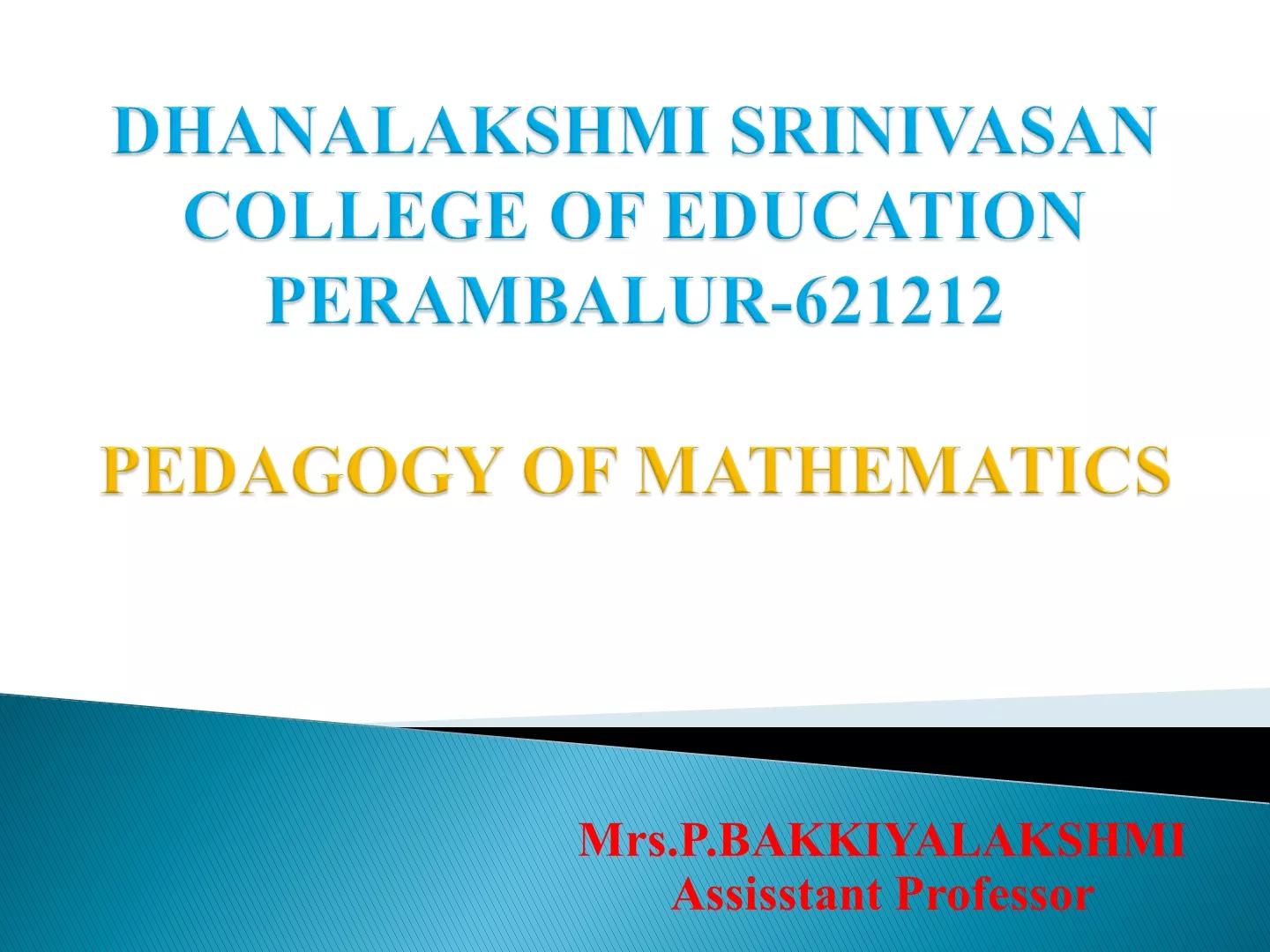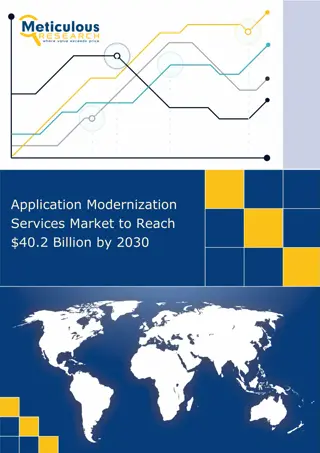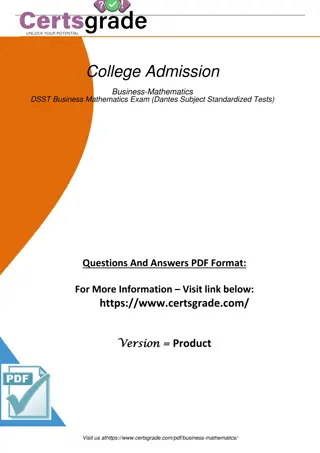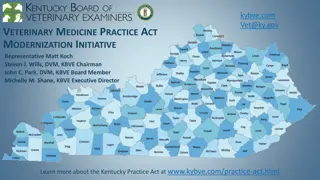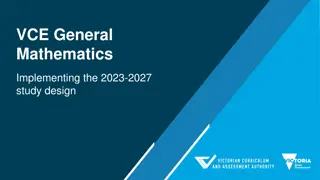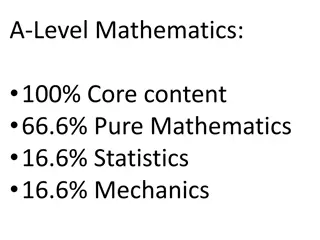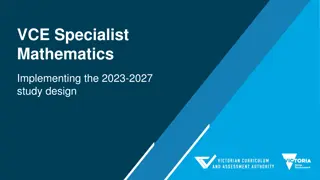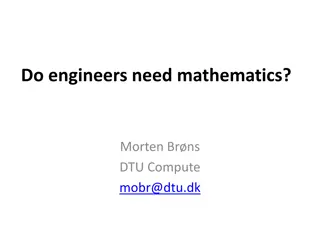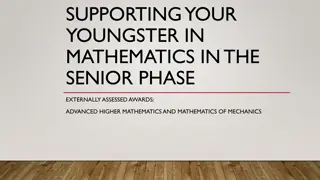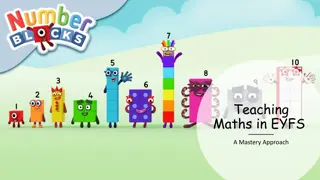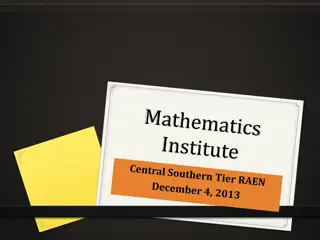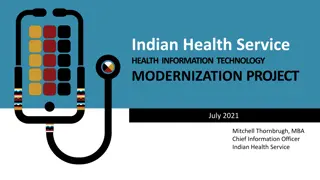Embracing Modernization in Mathematics Education
Embracing modernization in mathematics education involves adapting to rapid changes in technology, demographics, and student needs. Universities like UF and UM-Dearborn are introducing new programs and leveraging online resources to better serve diverse student populations and enhance learning outcomes in mathematics and data science.
Download Presentation

Please find below an Image/Link to download the presentation.
The content on the website is provided AS IS for your information and personal use only. It may not be sold, licensed, or shared on other websites without obtaining consent from the author.If you encounter any issues during the download, it is possible that the publisher has removed the file from their server.
You are allowed to download the files provided on this website for personal or commercial use, subject to the condition that they are used lawfully. All files are the property of their respective owners.
The content on the website is provided AS IS for your information and personal use only. It may not be sold, licensed, or shared on other websites without obtaining consent from the author.
E N D
Presentation Transcript
AMS Chairs Workshop Modernizing Mathematics and Mathematicians Kevin Knudson University of Florida Jennifer Zhao University of Michigan Dearborn January 14, 2020 Denver
Why modernize Math and Mathematicians? Meet rapid demographic and technological changes. Respond to increased computational power and changing market demands. Serve a more diverse student population. Junior faculty may have different work-life balance expectations; proper mentoring required.
I. Embracing and contributing to computational/quantitative programs launched on campus At UM-Dearborn, the following new programs were added within the past 5 years Undergraduate Applied Statistics program Undergraduate Data Science Program Undergraduate Integrated Actuarial Study Program Master Data Science Program Certificate in Math for Finance
I. Embracing and contributing to computational/quantitative programs launched on campus At UF, a new undergraduate data science program will launch in Fall 2020 Joint effort between math and statistics (with a little help from computer science) The UF Informatics Institute launched in 2014, pulling together researchers across campus
Group discussion 15 minutes What is the most challenging curricular issue your department faces? Have you faced external pressures to alter your curriculum?
II. Open access texts and online homework systems may help us better serve students from lower income families At UM-Dearborn, we have used WebWork for most multi-section courses. adopted free online open-source textbook for Differential Equations and Linear Algebra. encouraged instructors to use eBook, free to students, for many upper and graduate levels courses.
II. Open access texts and online homework systems may help us better serve students from lower income families At UF: built our own instance of the Ximera platform for online homework, saving students approximately $250K per semester moved to open-source texts in college algebra, precalculus, and calculus
Group Discussion 15 minutes Has your department made any move toward adopting open source materials? Are there sufficient resources on your campus to help you do this? What are the barriers? Do your faculty even want to do this?
III More robust mentoring along with more flexible work assignments can help guide junior faculty to a positive tenure decision At UF: We have hired 9 tenure-track faculty and 9 permanent lecturers in the past two years This has created a lot of opportunity to expand course offerings and reduce class sizes Also gives the chair a lot of flexibility in scheduling Junior faculty get reduced teaching loads, the first two years as part of their startup from the college and beyond by departmental agreement Junior faculty get priority for schedule flexibility. Teaching may be shifted among terms. Time of day can be adjusted easily. All junior faculty have senior faculty mentors and the chair checks in occasionally to ensure things are going well.
Group Discussion 15 minutes What steps has your department taken to help junior faculty achieve proper work/life balance? What role do chairs play in this? Are there effective strategies for communicating this to deans and other administrators? Has your department altered its T&P criteria in recent years to reflect this?
Closing Remarks The issues are likely to become more prevalent. It would be best for you and your department to get out in front of them. Think proactively instead of waiting to deal with problems when they arise. Engage your colleagues in conversation about it now. Be prepared for resistance and barriers.
